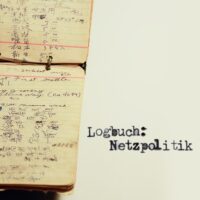Obama Syria; Zimbabwe Food; Venezuela Shortage; Strikes in Colombia; Fukushima Ice Wall; Energy in Germany; Life Expectancy Costa Rica; Rodman North Korea; Clean Technica
This week we begin with an update as Syria intervention is debated in Europe and North America. The UN reports that Zimbabwe will need food aid this winter. Venezuela, meanwhile, is facing its own food shortages. In an effort to handle radioactive water in Fukushima, an ice wall will be built. Renewable energy in Germany getting cheaper despite the political debate that rages on. Report shows that the poorest of Costa Rica actually live some of the longest lives in the world. Dennis Rodman is back in North Korea to hang with the young leader. Newz Source for this week is Clean Technica, for those who want information about sustainability and alternative energy.
Links:
- Obama Confident He Will Get Syria Backing
- 2.2 Million Zimbabweans Will Need Food Aid
- Food Shortage in Venezuela
- Agricultural Strikes in Colombia
- Fukushima to Build Ice Wall for Radioactive Water
- Cost of Renewable Energy Falling in Germany
- Poorest Costa Ricans Living Longest Lives
- Dennis Rodman Back in North Korea
- NEWZ Source: Clean Technica
- Photo by Ian Burt / flickr


















Well, I’m not convinced Assad’s forces used chemical weapons in that specific incident.
For my part, the reasoning in my comment to last episode was based on the reports that Assad’s position is still strong in the civil war, including “approval” by the Syrian population, meaning he is perceived as the lesser evil. From that it seems irrational to risk drawing more international attention to Syria. On the other hand that is exactly what the rebels need. It should not be forgotten, that they have been suspected of using chemical weapons before by international (and if I remember correctly non-russian) observers. So at least, that seems to be a possibility. I do recognise however that Assad does not necessarily act rational.
Regarding the evidence against Assad’s forces. So far we have a lot of intelligence agencies that all claim to possess such evidence, but hardly anything has been shown to the public or at least neutral arbiters. The problem with secret evidence is that anyone can claim to have it.
Lying to justify military intervention is so normal, that you would almost think, the military leadership considers it bad luck not to do it. Unfortunately you have to regard misleading presentations and even outright lies a very real possibility in checking the plausibility of the various claims. (And this insight is not just based on the Third Gulf War, even though it was especially glaring there.)